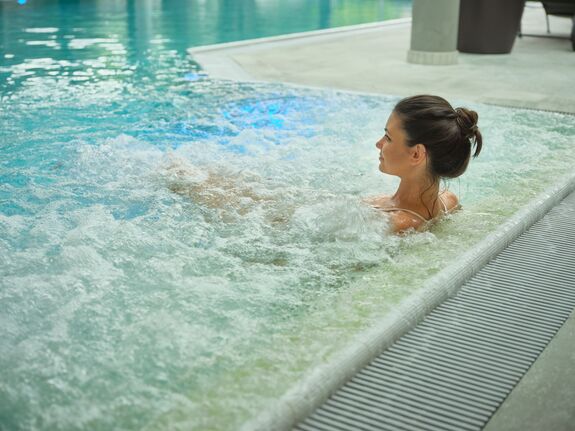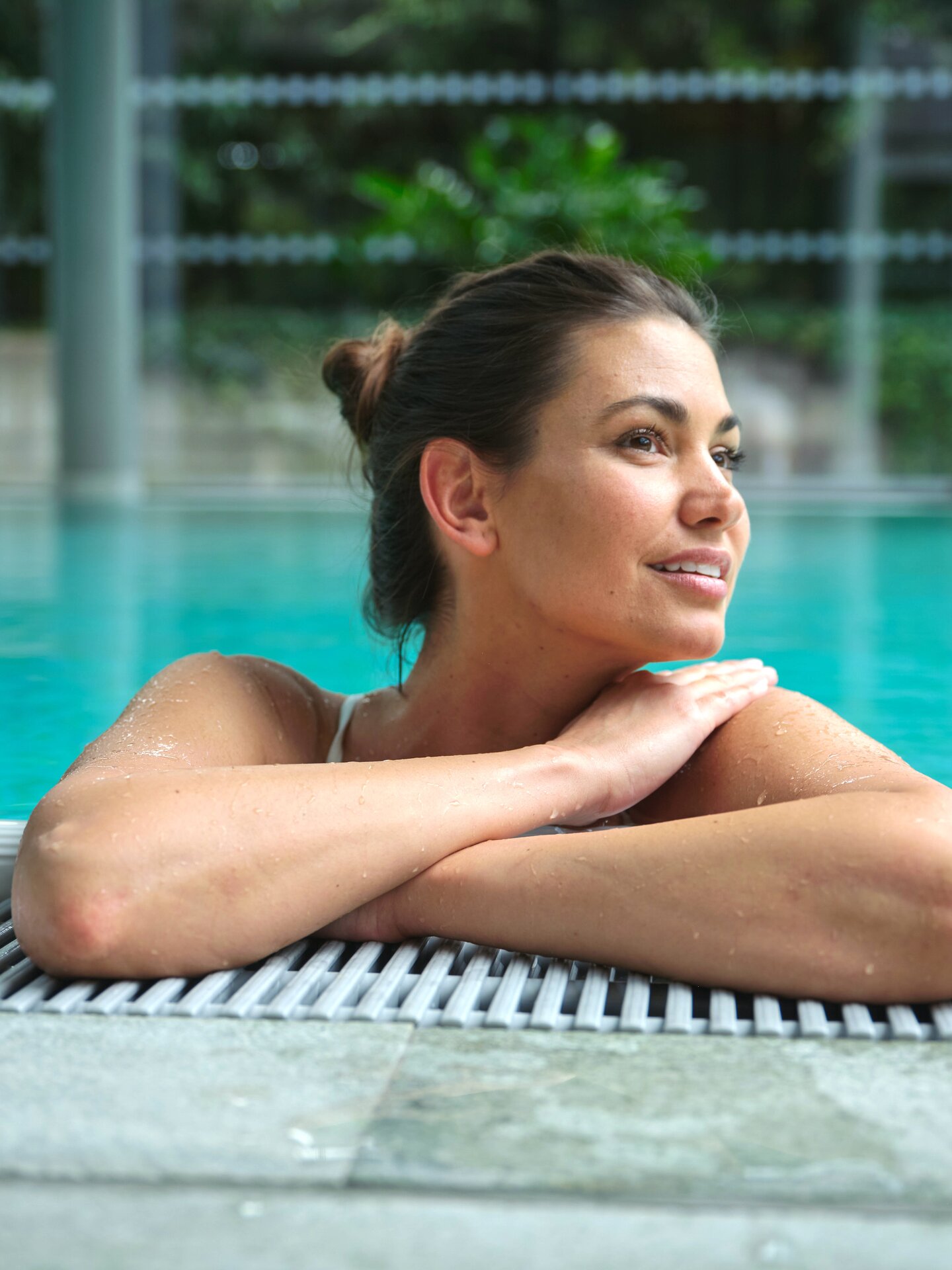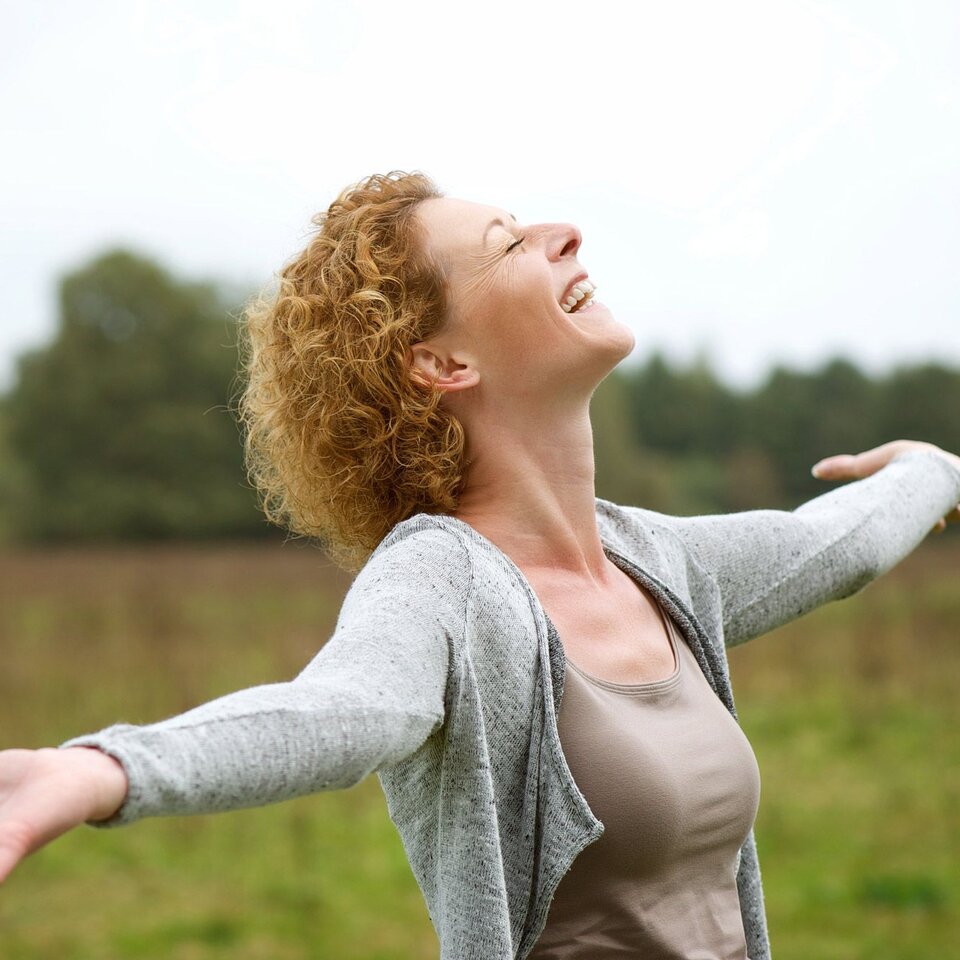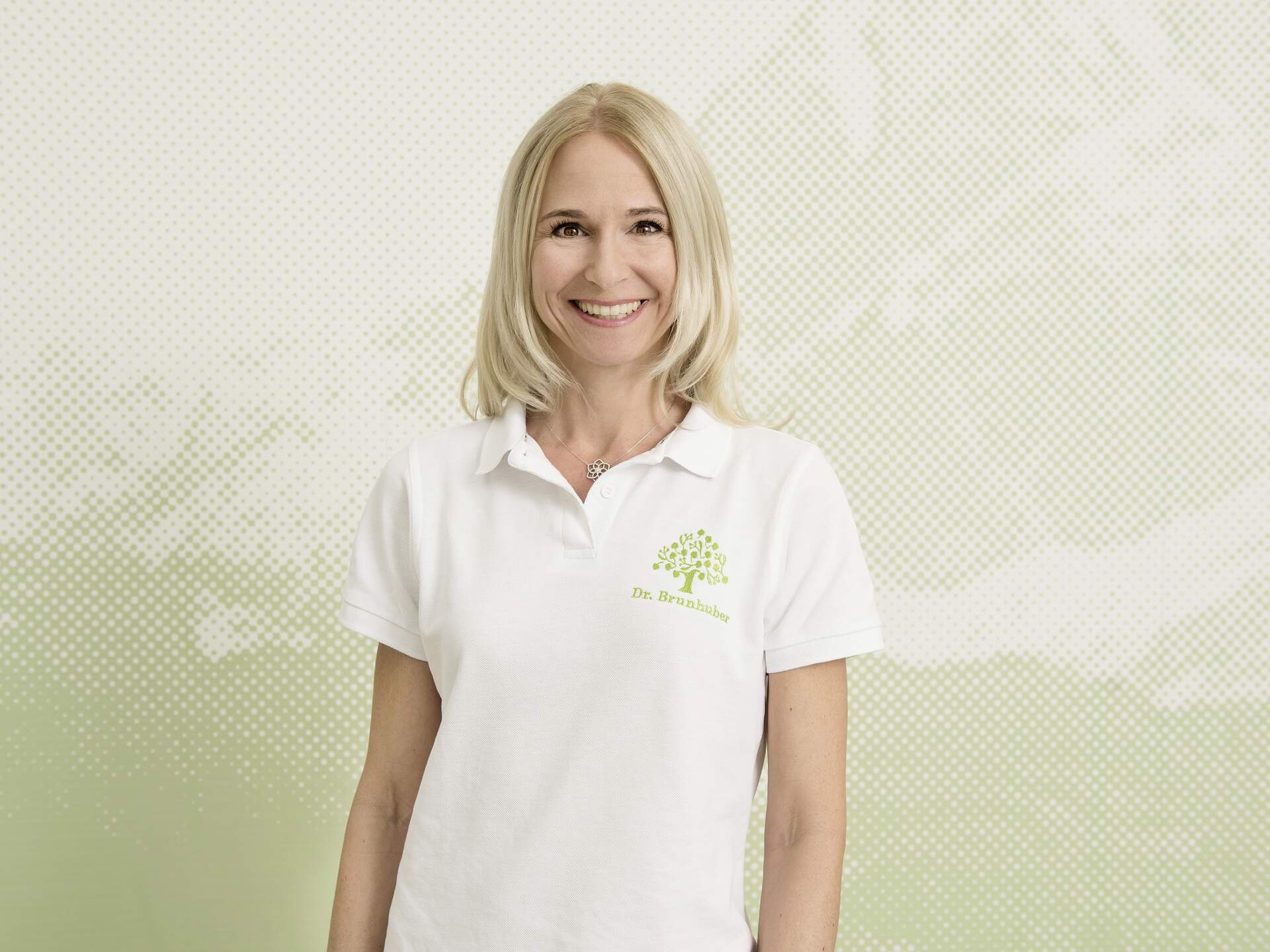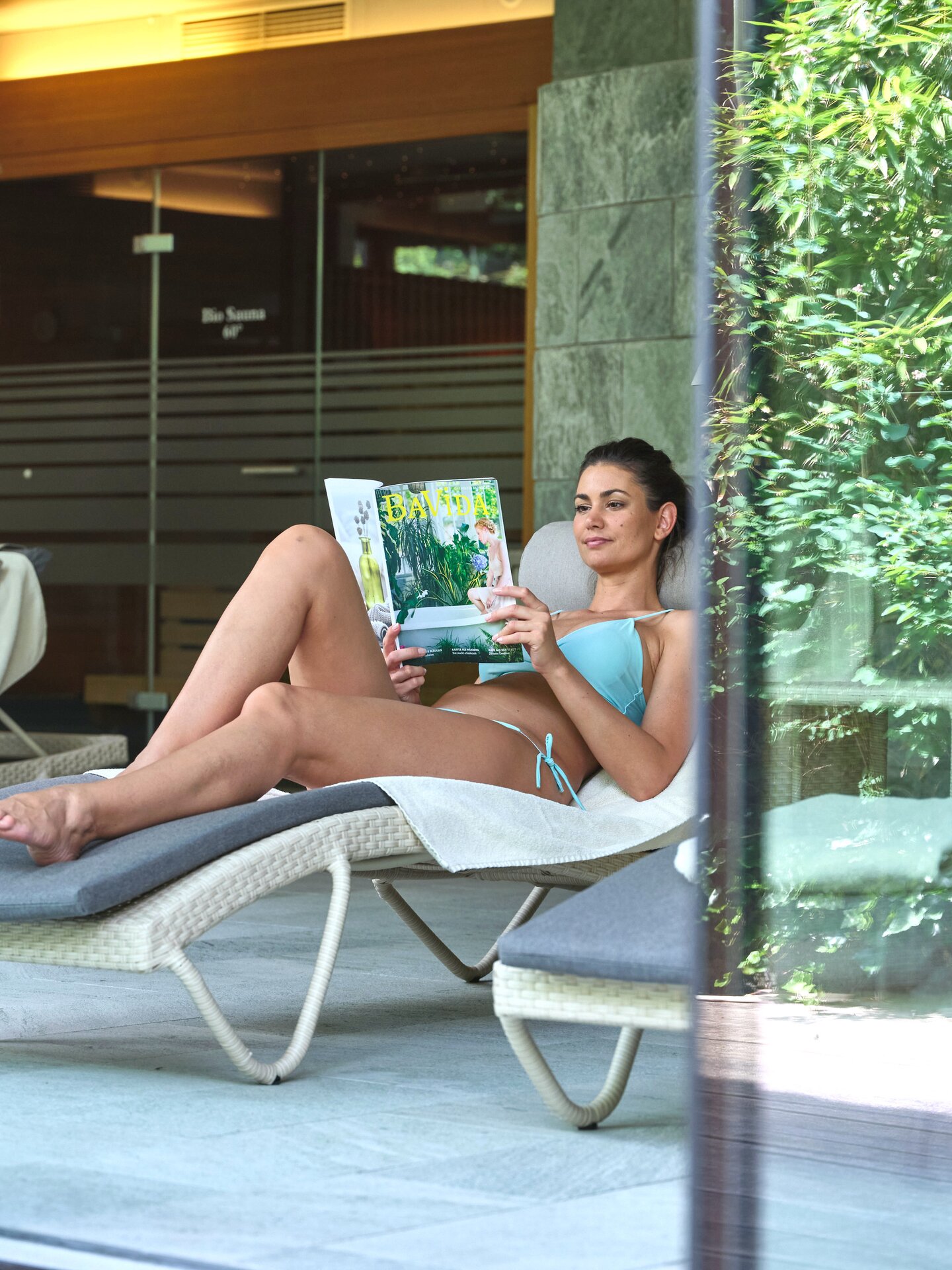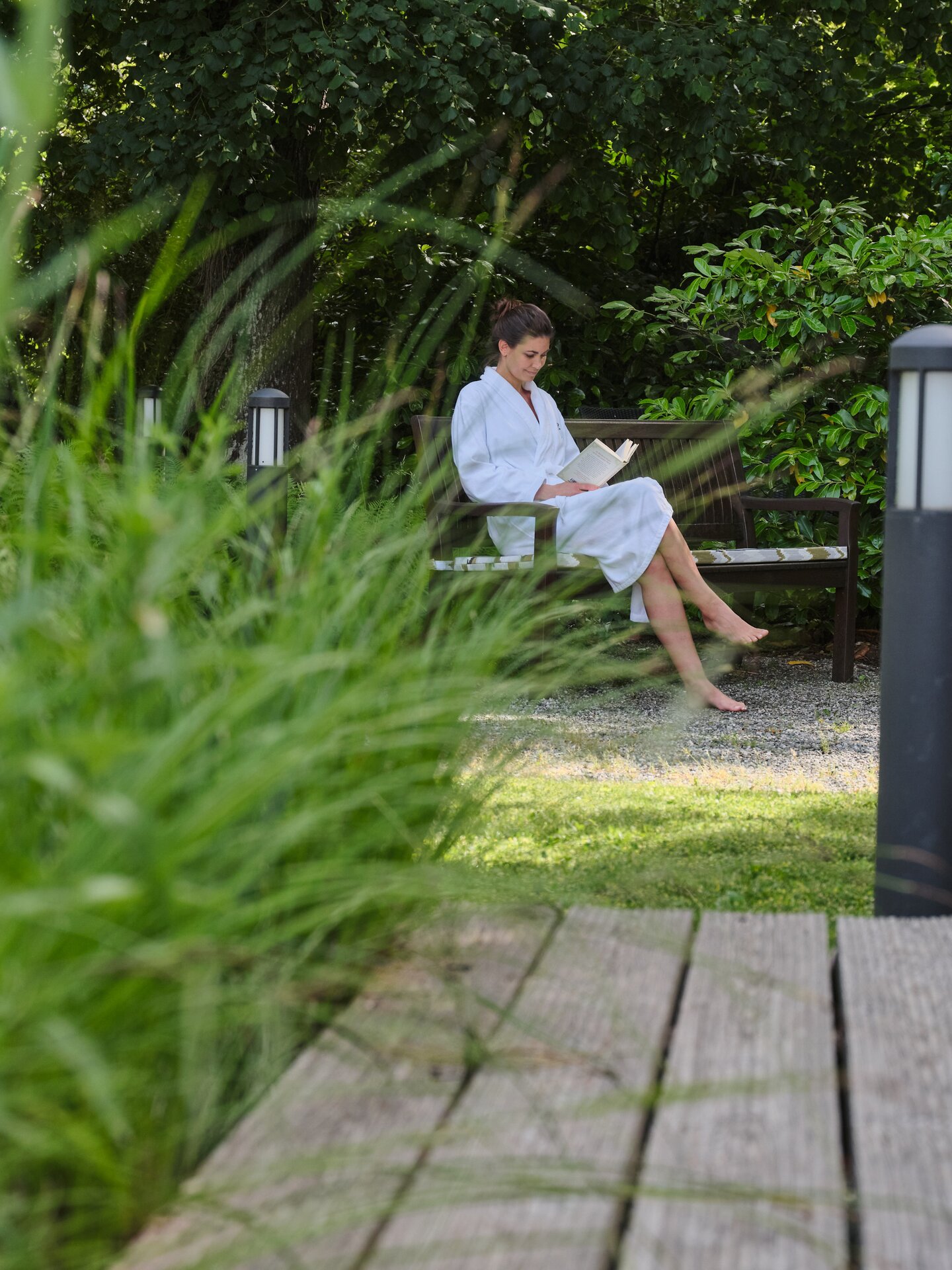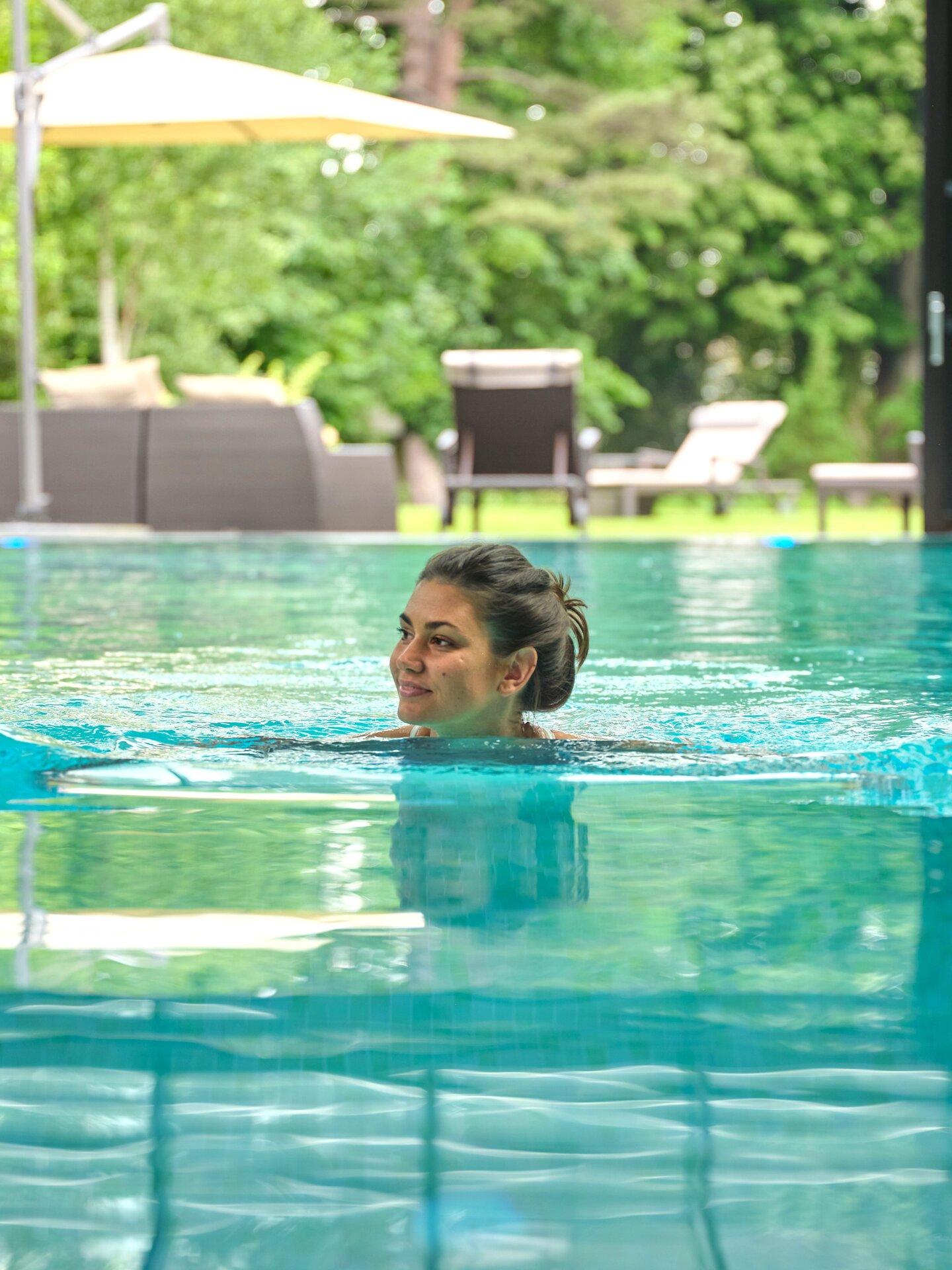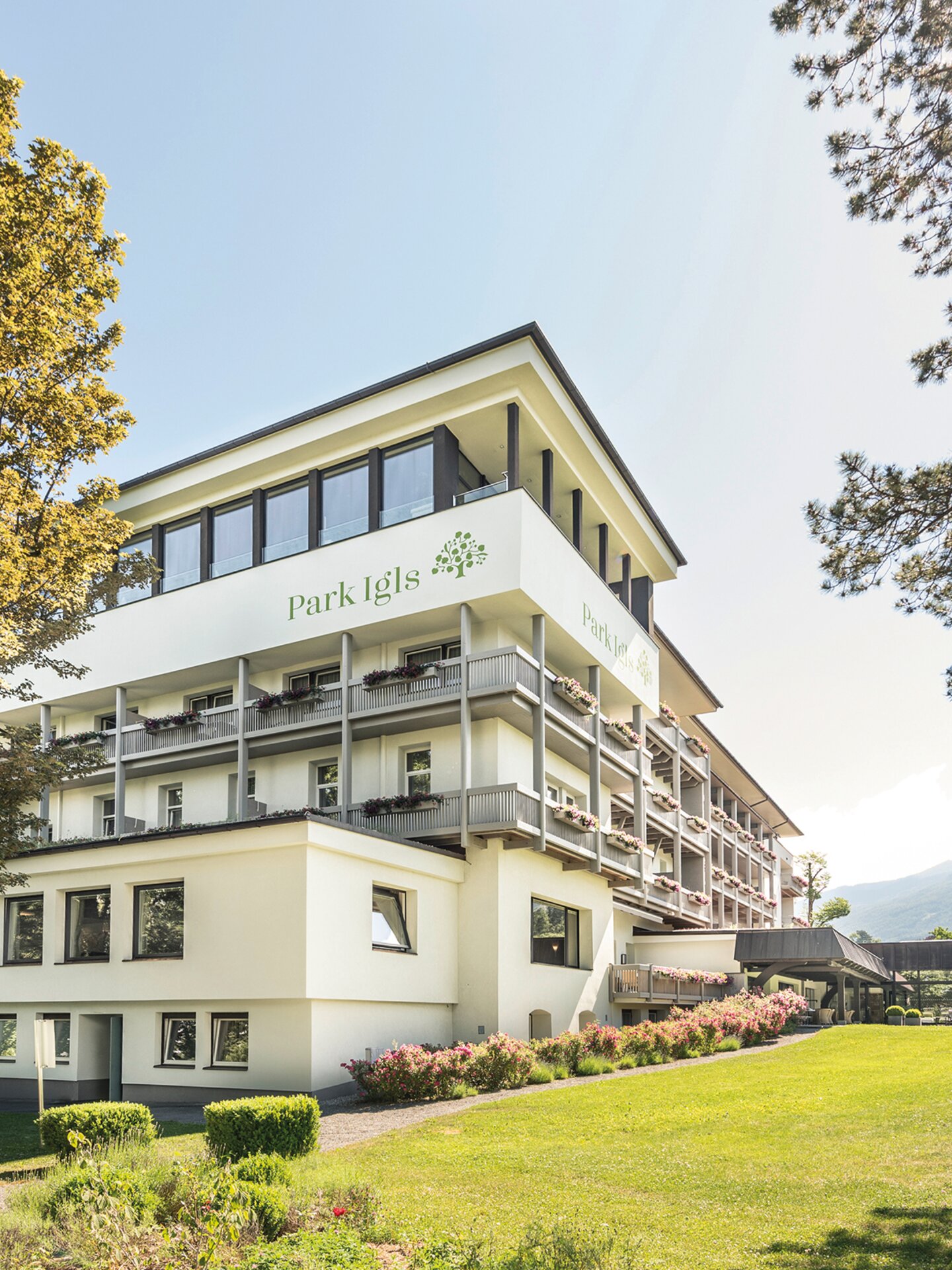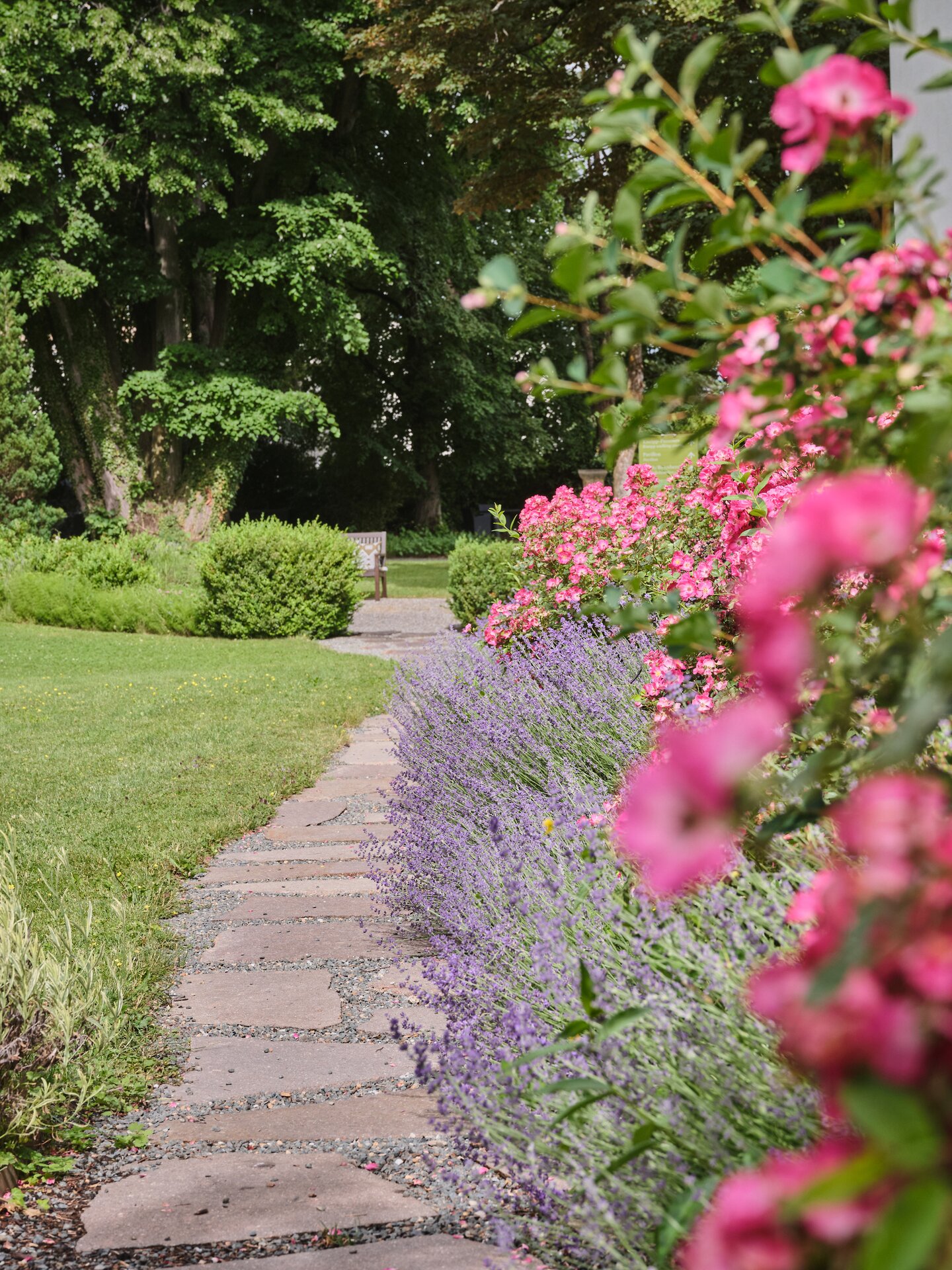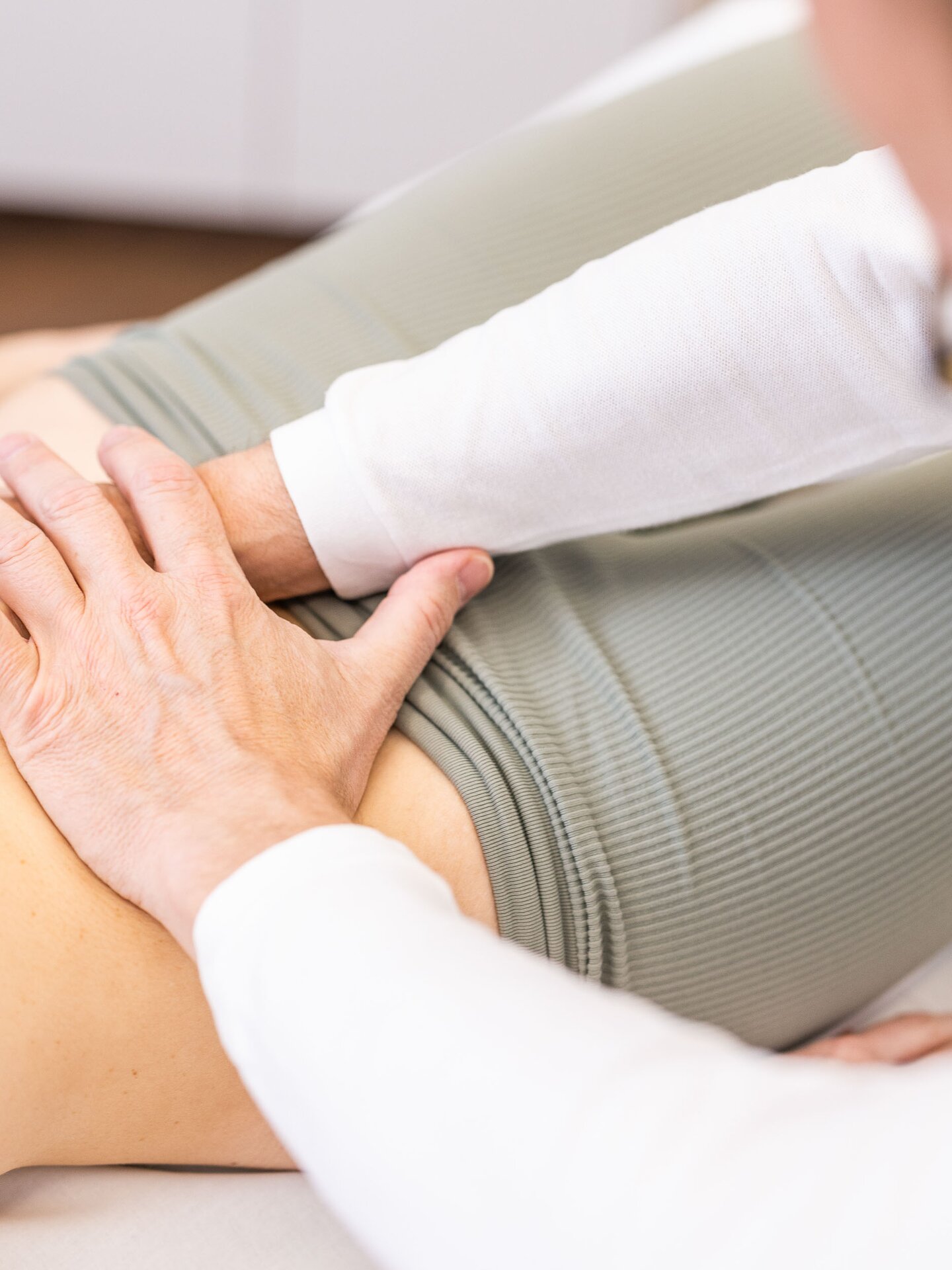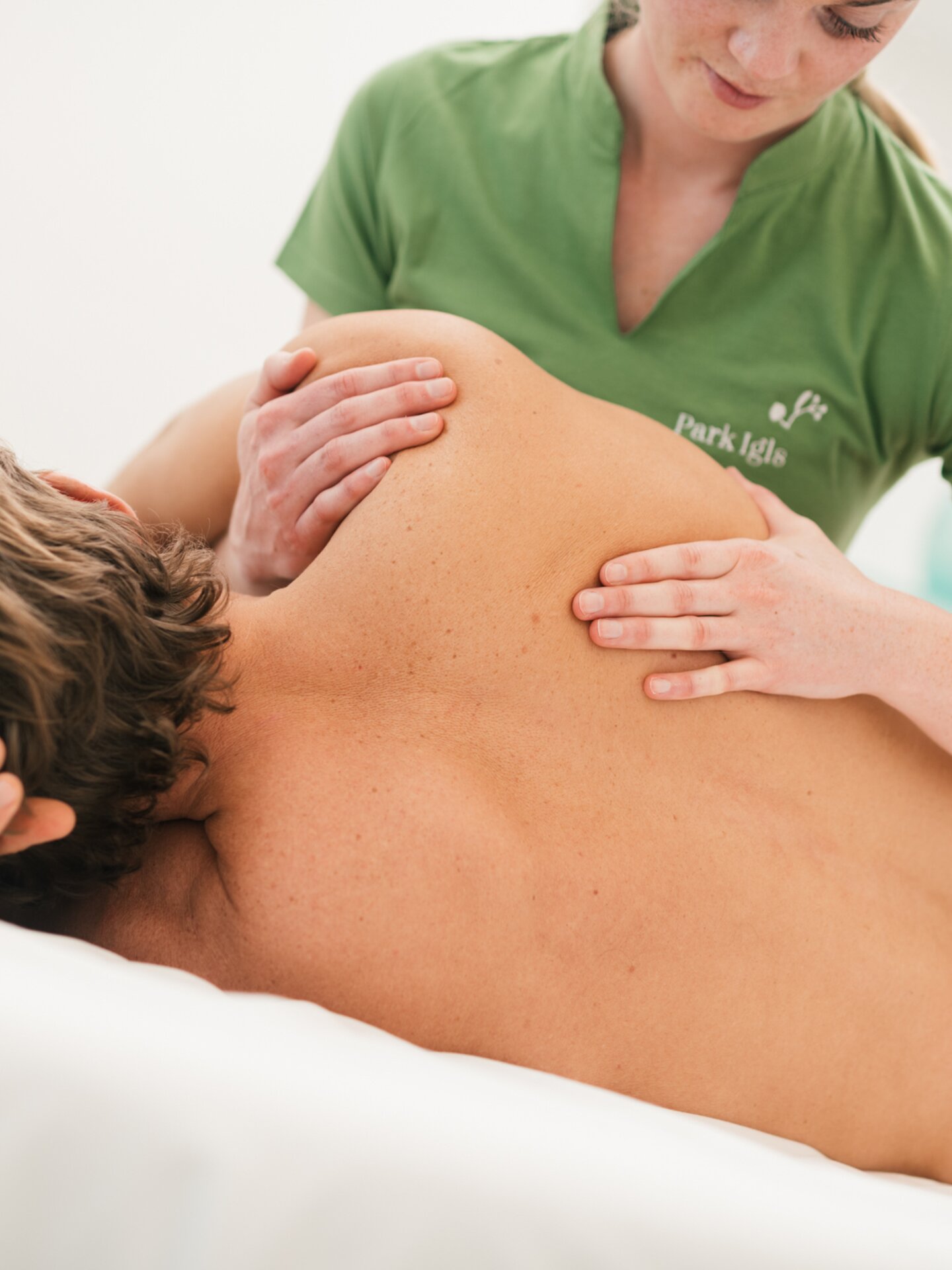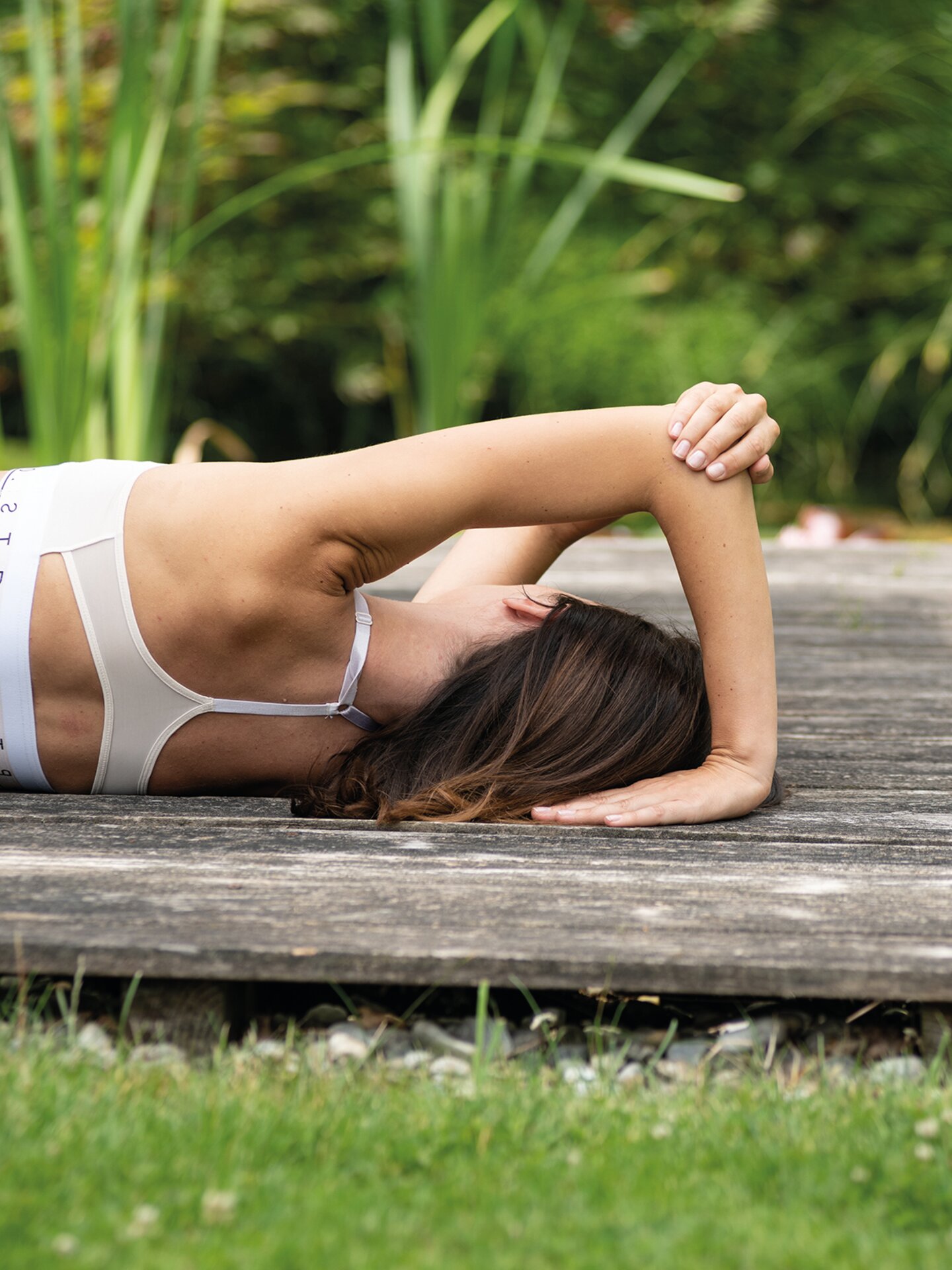A life full of change
In the course of her life, a woman changes almost by nature – physically, but also emotionally. Though there are many phases, the one that supposedly marks the end of womanhood is particularly important… A woman’s life is tied to menstruation and over the decades having a period has a significant influence on life planning.
The Menopause
Initially, the focus is on contraception. Later, in many cases, the desire to have children is a central issue as well. Then, out of nowhere and without anyone asking, a chapter ends.
This time of change is a great challenge for many women and includes both physical and psychological aspects. During this phase, it is necessary to learn to accept, and to position oneself as a woman as a new phase of life begins. Menopause is often quite similar. This phase provides the opportunity to both rediscover and resolidify one’s position in life.
Menopause-Fit
A week all to myself
Over the years, menopause has become such a recurring topic at Park Igls that a separate programme has now been developed. “Menopause-Fit” helps to guide women through this time of hormonal change, giving them the tools to understand, accept and deal with changing circumstances.
We will give you the tools you need to deal with this new situation and all that it brings.
from € 4.374 per person
»Menopause Fit« is bookable all year round and at any time! The programme has a stress-reducing, beneficial effect on the body and psyche and readies participants to accept the coming changes and to take a more relaxed approach to a new stage of life.
Dr. Irene Brunhuber
Dr Irene Brunhuber, a specialist in internal medicine and former Mayr physician at the Park Igls Medical Spa Resort, developed the programme together with her colleagues, initiating Therapist Christine Canestrini, Herbalist Alexandra Federa, Physiotherapist Lisa French, Psychologist Dr Melanie Robertson and Mayr Physician Dr Sonja Schottkowsky. We asked Irene Brunhuber to speak to us on behalf of the group.
My advice is...
… not to put too much pressure on yourself, but to face life in a relaxed and serene manner.
That is why it is so important for us to provide really good information on the subject as part of our week-long programme and teach, among other things, relaxation techniques and herbal therapies that you can continue yourself at home.
Changes in the body begin several years before the “actual” menopause starts, i.e. the absence of the period. At around forty years of age, the hormonal balance begins to shift and the first subtle symptoms may appear, including exhaustion, problems sleeping, mood changes or even weight gain, as a the metabolism also changes. This is referred to as perimenopause. With ageing, hormone production in the ovaries gradually reduces. First, less progesterone, also called luteal hormone, is produced.
Later on during this process, oestrogen levels also decrease, resulting in the familiar hormonal fluctuations. The start of menopause is retrospectively defined as the final menstrual period. This can take place anywhere from the ages of 45 to 55.
No, not always. The question, of course, is whether they are actually symptoms of menopause at all! Mood swings or problems sleeping are not necessarily attributable to hormonal changes. Sometimes, such symptoms can be triggered by stress. After all, many women juggle work and family and this can be very challenging indeed! Poor eating habits can also be at fault that affect the liver, leading to night sweats. In such cases, for example, a regenerative time-out based on Mayr-Prevent medicine helps to give the body some relief and much-needed new energy.
For this reason, our menopause programme at Park Igls also includes an extended examination of the blood in addition to a special menopause exam to clarify whether a woman is experiencing menopause and, if so, which stage.
At the turn of the millennium, it was common practice to treat women with menopausal symptoms by administering hormones, regardless of their specific symptoms, medical history or risk factors. It soon became apparent that such hormonal replacement therapies were not the best course of action after all. On the contrary, they sometimes increased the risk of breast cancer or strokes, for example. Today, hormones are used very selectively and only in consultation with a gynaecologist to weigh the benefits and risks very carefully.
At Park Igls, we hope to raise awareness for this topic and support women with massages, physiotherapy, aroma and herbal treatments as well as talking therapies. Even today, the topic remains taboo. As a result, it often helps if you can talk about the experience in a safe environment free from shame, and exchange ideas with like-minded people. If a patient has very severe symptoms, it is essential to seek the advice of a gynaecologist.
Absolutely, I would even say that the emotional aspect is often in the foreground. Statistically, about 90 percent of women complain of nervousness and irritability, followed by a drop in overall fitness and an increase in exhaustion (80%), with hot flushes and sweating coming in a close second (70%). In addition, 60 percent struggle with depressive moods and every second woman suffers from a sleep disorder. Our society rewards performance. Women have to be dynamic, nice and friendly, while keeping their family and work lives under control. They are expected to be energetic and in a good mood, in addition to being wrinkle- free, slim and as beautiful as possible. There is no space for a woman to age, but menopause makes growing older abundantly clear nevertheless. This may give a woman the feeling that she is no longer a woman.
Or even worse: A sense of failure. Surprisingly, in cultures where age is valued and mature women are held in higher esteem, fewer physical complaints are reported on average during menopause. In addition, menopause usually occurs at a time when women are undergoing a state of upheaval anyway. The children are out of the house, which often also changes the relationship with one’s partner, and perhaps it’s time for a professional change as well? All this, of course, has an enormous effect on women.
Preparing can be difficult, especially since there is no way of knowing at the time that your last period was truly the last. As with almost all aspects in life, however, a generally healthy and mindful lifestyle with a balanced diet and sufficient exercise is the best preparation possible. The fitter and more balanced you are, the better you will be able to handle different phases of life and situations. It is important to realise that menopause is not a disease, but a natural part of life instead. One has not done anything “wrong”, and none of us can actively delay the march of time.
It is a major factor. With the onset of menopause, many women develop high blood pressure. This is often regarded rather dismissively, but it can in fact lead to dangerous secondary diseases such as vascular calcification, heart attacks, strokes, cardiac insufficiency or kidney disease. A healthy lifestyle has positive effects on blood pressure, among other things, and exercise helps prevent osteoporosis, which studies show increases significantly around menopause. Lots of sport also lifts your spirits as well!
In addition, women should also pay close attention to their diets: While feeling full after eating lessens with age, you also burn fewer calories, which in combination leads to weight gain. This is another reason why exercise is so important! During this phase, women should pay close attention to a low- carbohydrate diet and consume more protein instead. This also helps the muscles, which deteriorate with age.
I personally think so. In any case, it helps to deal with the subject openly… talking helps. And you can also see menopause as something positive: You no longer need to worry about menstrual cramps or contraception. And, because the children are out of the house, you’ll have time for yourself or as a couple again. That will allow you to really focus on your own personal needs and do what makes you happy. Age can bring a certain calm and firmness to life. There is peace of mind in knowing a little bit more about what life is really about.
